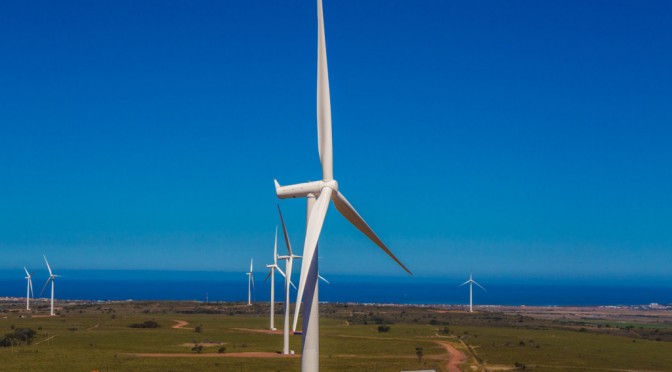South Africa is falling behind on renewable energy project implementation, even as other nations accelerate their plans for green energy.
According to data from Greenbyte, a renewable energy management systems manufacturer, SA lags far behind fellow BRICS country China which has 188 232MW (megawatts) of wind power capacity and 106 921MW of solar energy capacity.
SA has just 2 094MW of wind and 1 450MW of solar capacity.
Environmental activist organisation Greenpeace said the problem lay with renewable energy policy implementation.
“We have been stuck in a black hole for over two years while Eskom refused to sign the power purchase agreements for the recently approved 27 renewable energy independent power producer (IPP) projects, which has created massive policy uncertainty in the renewable energy space,” said Nhlanhla Sibisi, Greenpeace Africa Climate and Energy campaigner.
“The utility was effectively holding the country to ransom, and national government did not intervene to ensure that the renewable energy projects went ahead. Added to this, the lack of an incentivising framework for rooftop solar and Eskom’s own lack of investment in renewable energy have created a significant under-investment in renewable energy,” Sibisi said.
Eskom largely relies on coal for energy generation, with 13 coal-fired plants producing 34 952MW. The nuclear-powered Koeberg plant produces 1 830MW.
The utility’s Klipheuwel Wind Farm has a capacity of 3MW, while the Sere Wind Farm in Vredendal in the Western Cape has a capacity of 100MW.
But, according to the World Wide Fund for Nature’s (WWF) Renewable Energy: Facts and Figures 2017 report, SA has vast untapped capacity to drive renewable energy projects.
The report argues that South Africa’s wind energy potential alone is 6 700GW (gigawatts) if wind farms had to be installed across the country, except in exclusion zones such as national parks and settled areas.
The WWF report indicates that, on solar power, SA has failed to take advantage of abundant sunshine even though countries in Europe and North America do, despite having much less solar irradiation.
The Northern Cape, Free State and North West provinces are ideally suited to massive solar plants because of the abundant sunshine they receive.
Globally, the world’s biggest economies, China and the US, led in terms of solar power, said Greenbyte.
“Established solar power nations China and USA kept their impressive growth with over 25% new capacity added in 2017 respectively. Also notable in 2017, China crossed the 100GW mark in installed solar power capacity,” said the company.
NDP goals
In SA, the National Development Plan calls for the procurement of “at least 20 000MW of renewable electricity by 2030” and the decommissioning of 11 000MW of ageing coal-fired power stations.
“The major challenges to rolling out renewable energy projects are centred around political interference blocking policy certainty, inadequate renewable energy targets, the fossil fuel lobby, the lack of a plan for a just transition which has impacted on disenfranchised trade unions, and a lack of an enabling and incentivising framework,” said Sibisi.
Energy Minister Jeff Radebe recently signed a R56bn contract with 27 independent power producers, but the National Union of Mineworkers has threatened to end its support for the ANC over the deal, arguing that it would cost 40 000 jobs in the coal sector.
“Given the current renewable energy IPPs that are already in production and in planning (this includes the 27 renewable energy projects that must still be signed), at least 100 000 full-time equivalent jobs would be created through the current private renewable energy projects alone,” Happy Khambule, Greenpeace Africa’s senior political advisor recently told News24.
The South Africa Photovoltaic Industry Association welcomed the signing of the IPP contracts, saying it “will indeed boost and revitalise long-term investor confidence” and create more than 61 000 jobs.
“Renewables, and the wind power industry in particular, has a demonstrated alignment with President Cyril Ramaphosa’s national agenda of economic growth, particularly in the cases of job-creating manufacturing, construction and rural development,” said the South African Wind Energy Association in a statement.
news24.com


